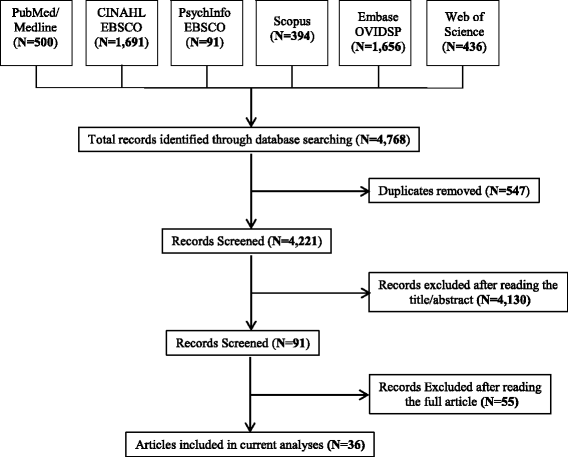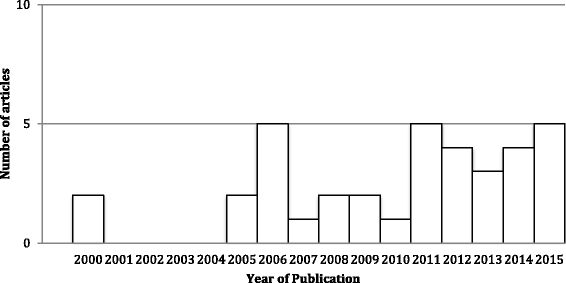Factors affecting residents transition from long term care facilities to the community: a scoping review
- PMID: 28978324
- PMCID: PMC5628420
- DOI: 10.1186/s12913-017-2571-y
Factors affecting residents transition from long term care facilities to the community: a scoping review
Erratum in
-
Correction to: factors affecting residents transition from long term care facilities to the community: a scoping review.BMC Health Serv Res. 2017 Oct 30;17(1):694. doi: 10.1186/s12913-017-2636-y. BMC Health Serv Res. 2017. PMID: 29084531 Free PMC article.
Abstract
Background: Long-term care facilities (LTCFs) are often places where persons with complex health needs that cannot be met in a community setting, reside and are cared for until death. However, not all persons experience continuous declines in health and functioning. For some residents who experience improvement in personal abilities and increased independence, transition from the LTCF to the community may be an option. This scoping review aimed to synthetize the existing evidence regarding the transition process from discharge planning to intervention and evaluation of outcomes for residents transitioning from LTCFs to the community.
Methods: This review followed a five-stage scoping review framework to describe the current knowledge base related to transition from LTCFs to community based private dwellings as the location of the discharge (example: Person's own home or shared private home with a family member, friend, or neighbour). Of the 4221 articles retrieved in the search of 6 databases, 36 articles met the criteria for inclusion in this review.
Results: The majority of studies focussed on an older adult population (aged 65 years or greater), were conducted in the USA, and were limited to small geographic regions. There was a lack of consistency in terminology used to describe both the facilities as well as the transition process. Literature consisted of a broad array of study designs; sample sizes ranged from less than 10 to more than 500,000. Persons who were younger, married, female, received intense therapy, and who expressed a desire to transition to a community setting were more likely to transition out of a LTCF while those who exhibited cognitive impairment were less likely to transition out of a LTCF to the community.
Conclusions: Findings highlight the heterogeneity and paucity of research examining transition of persons from LTCFs to the community. Overall, it remains unclear what best practices support the discharge planning and transition process and whether or not discharge from a LTCF to the community promotes the health, wellbeing, and quality of life of the persons. More research is needed in this area before we can start to confidently answer the research questions.
Keywords: Discharge planning; Home for the aged; Long-term care facilities; Older adults; Patient centred care; Patient oriented care.
Conflict of interest statement
Ethics approval and consent to participate
Not applicable
Consent for publication
Not applicable
Competing interests
The authors declare that they have no competing interests.
Publisher’s Note
Springer Nature remains neutral with regard to jurisdictional claims in published maps and institutional affiliations.
Figures
Similar articles
-
Standards and quality of care for older persons in long term care facilities: a scoping review.BMC Geriatr. 2022 Mar 19;22(1):226. doi: 10.1186/s12877-022-02892-0. BMC Geriatr. 2022. PMID: 35303830 Free PMC article.
-
Beyond the black stump: rapid reviews of health research issues affecting regional, rural and remote Australia.Med J Aust. 2020 Dec;213 Suppl 11:S3-S32.e1. doi: 10.5694/mja2.50881. Med J Aust. 2020. PMID: 33314144
-
Transitional Care Interventions for Older Residents of Long-term Care Facilities: A Systematic Review and Meta-analysis.JAMA Netw Open. 2022 May 2;5(5):e2210192. doi: 10.1001/jamanetworkopen.2022.10192. JAMA Netw Open. 2022. PMID: 35507344 Free PMC article.
-
Mapping evidence on standards and quality of care for older persons in long-term care facilities: a scoping review protocol.Syst Rev. 2021 May 22;10(1):153. doi: 10.1186/s13643-021-01709-2. Syst Rev. 2021. PMID: 34022957 Free PMC article.
-
Identifying performance factors of long-term care facilities in the context of the COVID-19 pandemic: a scoping review protocol.Syst Rev. 2022 Sep 23;11(1):203. doi: 10.1186/s13643-022-02069-1. Syst Rev. 2022. PMID: 36151556 Free PMC article.
Cited by
-
Older Adults' Goals and Expectations When Using Long-Term Services and Supports.J Appl Gerontol. 2022 Mar;41(3):709-717. doi: 10.1177/07334648211033671. Epub 2021 Jul 27. J Appl Gerontol. 2022. PMID: 34315240 Free PMC article.
-
Empowering Ontario's long-term care residents to shape the place they call home: a codesign protocol.BMJ Open. 2024 Feb 6;14(2):e077791. doi: 10.1136/bmjopen-2023-077791. BMJ Open. 2024. PMID: 38320841 Free PMC article.
-
Correction to: factors affecting residents transition from long term care facilities to the community: a scoping review.BMC Health Serv Res. 2017 Oct 30;17(1):694. doi: 10.1186/s12913-017-2636-y. BMC Health Serv Res. 2017. PMID: 29084531 Free PMC article.
-
Return to community living and mortality after moving to a long-term care facility: A nationally representative cohort study.J Am Geriatr Soc. 2023 Feb;71(2):569-576. doi: 10.1111/jgs.18144. Epub 2022 Nov 24. J Am Geriatr Soc. 2023. PMID: 36420717 Free PMC article.
-
Hospice use and one-year survivorship of residents in long-term care facilities in Canada: a cohort study.BMC Palliat Care. 2019 Nov 12;18(1):100. doi: 10.1186/s12904-019-0480-z. BMC Palliat Care. 2019. PMID: 31718634 Free PMC article.
References
-
- Hirdes JP. Addressing the health needs of frail elderly people: Ontario’s experiences with an integrated health information system. Age. Aging. 2006;35:329–331. - PubMed
-
- Carpenter I, Hirdes J. Organisation for economic co-operation and development (OECD). A good life in old age? Monitoring and improving quality in long-term care. 2013. Using interRAI assessment systems to measure and maintain quality of long-term care; pp. 93–139.
-
- Council of the European Union . Adequate social protection for long-term care needs in an ageing society. 2014. Social protection committee and the European Commission services.
-
- Canadian Institute for Health Information [CIHI]. Health Care in Canada 2011: A Focus on Seniors and Aging 2011. https://secure.cihi.ca/free_products/HCIC_2011_seniors_report_en.pdf. Accessed 09 May 2016.
Publication types
MeSH terms
LinkOut - more resources
Full Text Sources
Other Literature Sources
Miscellaneous



